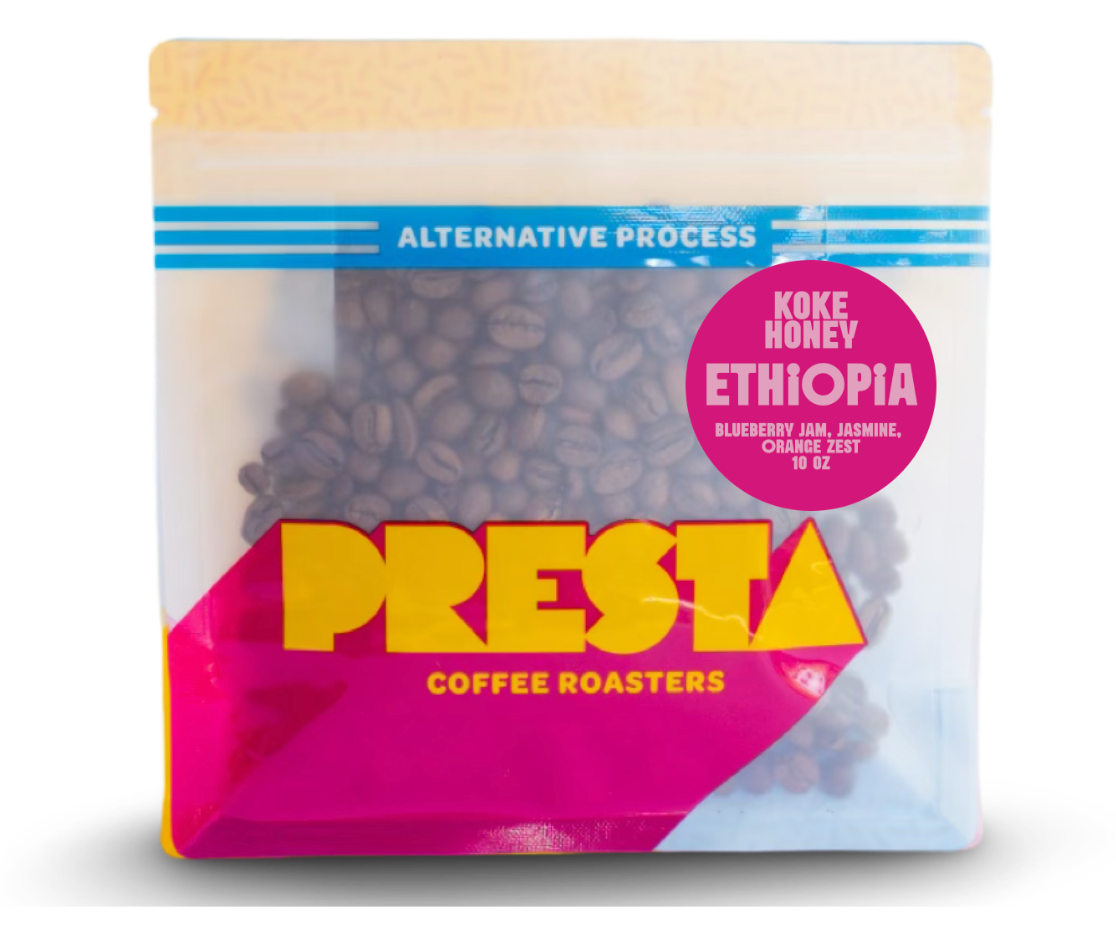
Ethiopia - Koke - Honey
Origin: Ethiopia
Region: Yirgacheffe
Farm/Farmer: Smallholder Producers
Elevation: 1800 MASL
Processing Facility: Koke & Birbes Kela Washing Stations
Varietal: Kurume, Dega, Wolisho
Processing Method: Honey
Tasting Notes: Blueberry Jam, Jasmine, Orange Zest
The Koke Washing station was built in 2011. In 2015 the staff of the washing station began guiding the smallholder farmers toward improved farming practices and coffee quality. Because of high demand last year (2022) for the honey process coffees from this washing station, Ally (coffee importers) expanded their purchasing to include coffee produced at the Birbes Kele Washing Station, that produces the same high quality and taste profile as it's counterpart. This lot was sourced from 1200 Smallholder farms in the surrounding Kebeles within the Yirgacheffe district, all growing the Ethiopian Heirloom Varieties, Kurume, Dega, and Wolisho.
Honey Processing is when the coffee cherries have their skin removed along with varying amounts of the fruit matter (or mucilage). The fruit that remains on the coffee seed (bean) changes through enzymatic reactions and oxidation, encouraging the bean to develop different flavor compounds depending on how long the fruit matter is left on the seed. We classify the different amounts of time based on the color changes to the mucilage; white, yellow, red, or black. White, meaning the bean was exposed for the shortest amount of time before the mucilage is removed, and black meaning the bean was left until the mucilage had completely darkened, and dried, before removal. The name Honey comes from the sticky quality that the fruit matter left on the bean has before it dries.
This coffee was rested for two days, letting fermentation happen in the cherry before de-pulping removing as much of the fruit layer. Skipping the washing portion of the cherry removal, the coffee seed (bean), is spread on raised beds that allow air flow above and below the beans. Once dried to the optimal moisture content, the parchment layer is milled off and the coffee is sent through mechanical sorters before a final hand sorting. The processing brings out incredible aromatics of lavender and dark chocolate and lots of layers to pick apart as the coffee cools.
